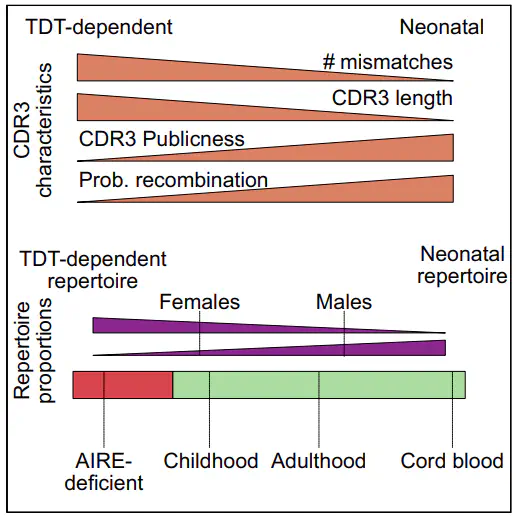
Abstract
Based on analyses of TCR sequences from over 1,000 individuals, we report that the TCR repertoire is composed of two ontogenically and functionally distinct types of TCRs. Their production is regulated by variations in thymic output and terminal deoxynucleotidyl transferase (TDT) activity. Neonatal TCRs derived from TDT-negative progenitors persist throughout life, are highly shared among subjects, and are reported as disease-associated. Thus, 10%–30% of most frequent cord blood TCRs are associated with common pathogens and autoantigens. TDT-dependent TCRs present distinct structural features and are less shared among subjects. TDT-dependent TCRs are produced in maximal numbers during infancy when thymic output and TDT activity reach a summit, are more abundant in subjects with AIRE mutations, and seem to play a dominant role in graft-versus-host disease. Factors decreasing thymic output (age, male sex) negatively impact TCR diversity. Males compensate for their lower repertoire diversity via hyperexpansion of selected TCR clonotypes.,